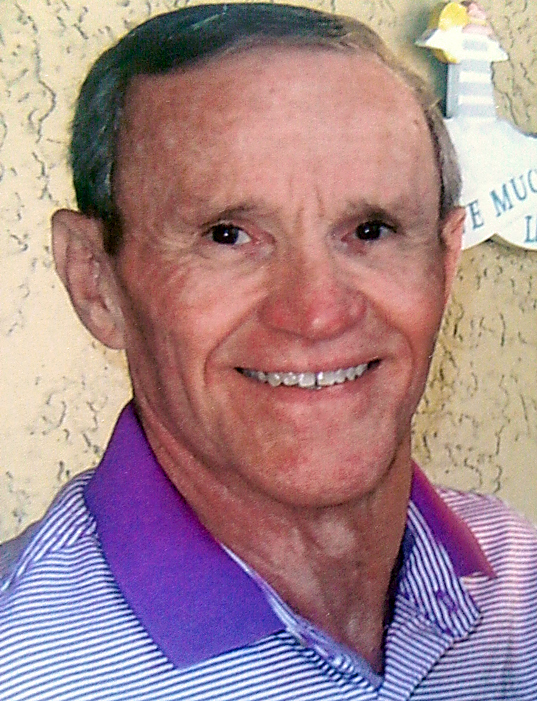When he met 15-year-old Patrick Murphy, Robert J. Crouse was a graduate student touring a school for the blind.
Murphy was trying to convince his sighted friends to teach him to ride a bicycle.
They helped Murphy mount the bike, and watched as he rode in wider circles — until he smashed into a building.
“He dusted himself off and said, ‘Let’s do it again.’ My father knew immediately that he wanted to be around the Patrick Murphys of the world,” said Eric Crouse of Falmouth.
In that moment when the spirit and determination of a blind boy made a lifelong impression, Mr. Crouse chose his career path. He went on to teach hundreds of blind and visually impaired persons around the world how to be more mobile and independent.
Mr. Crouse, who also probably saved Portland’s Iris Network from being closed, died April 5 at his home in The Villages, Fla. The longtime resident of South Portland was 71.
Mr. Crouse grew up in Michigan, the youngest of seven children. His mother was a teacher.
After high school, he followed in his mother’s footsteps, graduating from Western Michigan with a bachelor’s degree in education and with a master’s degree in special education.
In 1968, Mr. Crouse and his wife, Maxine Cavin, moved to Birmingham, England, where he took a job as director of the National Mobility Centre. It was during that assignment that Mr. Crouse developed a system that helped blind and visually impaired persons learn to walk with a cane.
“He was a pioneer for teaching the blind to move with a cane,” his son said.
Mr. Crouse returned to the United States in the early 1970s, working as executive director of the Atlanta Area Services for the Blind from 1972 to 1979.
He then accepted what he thought was going to be a temporary job assignment at the Maine Institution for the Blind in Portland. The institution, on Park Avenue, was in the process of closing and relocating its students.
Mr. Crouse went to the board of directors and told them, “I think we can turn this around,” his son recalled. He was subsequently hired as the school’s executive director, serving in that role from 1979 to 1995.
He renamed the facility the Maine Center for the Blind because it more accurately reflected its mission — of being a place for learning. The center served the entire state of Maine.
Mr. Crouse not only worked with blind and visually impaired persons, but he taught others to be their teachers.
He also developed several programs that allowed blind and visually impaired people to make products. For instance, Bath Iron Works contracted with the center to make knee pads used by shipyard welders.
None of those programs were lucrative, but they taught valuable job skills.
The Maine Center for the Blind is now called the Iris Network.
“He was good at a lot of things, but making money was not one of them,” his son said. “There were more important things in this life to my father than making money.
“He was inspired by his pupils,” his son said. “When I was looking through his desk drawers recently I found dozens of notes and thank you letters from the people he had mentored.”
Mr. Crouse and his wife lived in South Portland, in the city’s Meetinghouse Hill neighborhood. Mr. Crouse coached South Portland National Little League teams for 12 years.
“My father was an incredible teacher and a great motivator, but he was even more motivated by the people he taught. He was really interested in their lives and in their interests,” his son said.
In 1995, Mr. Crouse moved back to Atlanta to become executive director of the Blind and Low Vision Services of North Georgia. He retired in 2006, moving to The Villages in Florida.
“I asked him once, of all the places you’ve lived, which did you like the most. His response was, hands down, Maine,” his son said.
A memorial service — the date and time have not been set — will be held this summer in Portland.
Staff Writer Dennis Hoey can be contacted at 791-6365 or at:
dhoey@pressherald.com
Send questions/comments to the editors.




Success. Please wait for the page to reload. If the page does not reload within 5 seconds, please refresh the page.
Enter your email and password to access comments.
Hi, to comment on stories you must . This profile is in addition to your subscription and website login.
Already have a commenting profile? .
Invalid username/password.
Please check your email to confirm and complete your registration.
Only subscribers are eligible to post comments. Please subscribe or login first for digital access. Here’s why.
Use the form below to reset your password. When you've submitted your account email, we will send an email with a reset code.